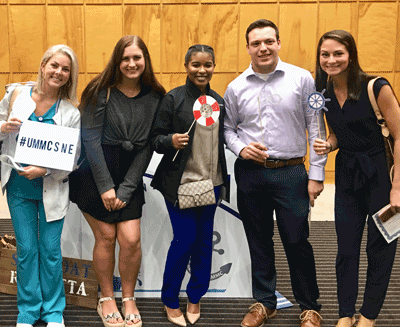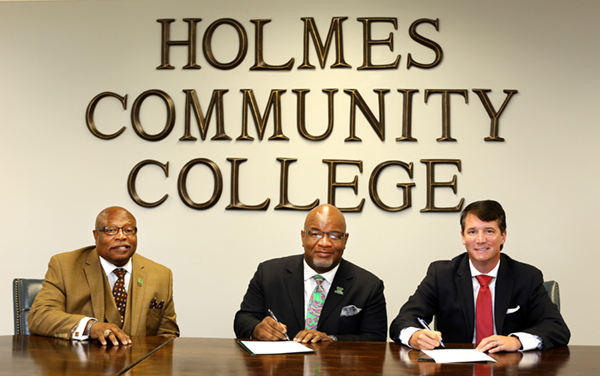2237Views
The Holmes Community College Social and Behavioral Science Department is hosting a Mental Health Awareness program on Thursday, April 18 at 12:15 p.m. in the McGowan Workforce Training Center on the Ridgeland Campus. The presentation will be broadcast to Goodman and Grenada campuses, as well.
The event will feature keynote speaker Deborah Upton, a mental health therapist, who will discuss student mental health issues, including how to handle stress.
“I’m knowledgeable in helping people navigate their journey to healing and wellness,” Upton said. “I believe that you’re not responsible for the hand you were dealt. You are responsible for your own awareness and healing so that you can become far more than who you thought you would be. My mantra has always been and always will be hope!
“Should anyone decide to make a telehealth appointment, they should know that I have knowledge and experience in treating a variety of conditions such as depression, anxiety, PTSD, OCD, grief, emotional dysregulation, relationship issues, parenting and behavior modification techniques, divorce recovery, conflict resolution, anger management and effective communication,” Upton said. “I am certified in Eye Movement Desensitization and Reprocessing (EMDR), a psychotherapy treatment that is designed to alleviate the distress associated with traumatic memories. My approach to therapy incorporates sensitivity, compassion, empathy and trust while honoring confidentiality, religious or spiritual beliefs and self-determination. Everyone has a story, and your story isn’t over.”
Holmes Practical Nursing instructor Caley Stogner will also present information and resources for mental health wellbeing as part of the program. Participants will learn about mental health resources available to them through Holmes’ MindHealth Navigator, as well.
According to Dr. Sarah K. Lipson, an assistant professor at Boston University School of Public Health, “College is a key developmental time; the age of onset for lifetime mental health problems also directly coincides with traditional college years – 75 percent of lifetime mental health problems will onset by age 24.”
Additionally, according to https://www.nimh.nih.gov/health/statistics/mental-illness, there were an estimated 57.8 million adults aged 18 or older in the United States with mental illness in 2021. This number represented 22.8 percent of all U.S. adults. Young adults aged 18-25 years had the highest prevalence of mental illness (33.7 percent) compared to adults aged 26-49 years (28.1 percent) and aged 50 and older (15.0 percent).
“The mental health of college students has been in a continual decline for the past decade and even more so with the recent pandemic,” said Holmes psychology instructor David Jones. “Too often, those seeking help with mental health issues are stigmatized. We want our students to realize there is nothing wrong with seeking help to address issues such as stress, anxiety, depression, suicidal ideations and other mental health problems. We go to our family doctor when we have physical problems and seeking help for mental health related issues should be just as common.”
For more information about the program, contact Jones at davjones@holmescc.edu.
###


